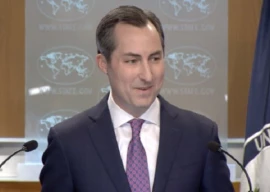
However, the nations around the world are trying to bring a different kind of revolution, the “entrepreneur revolution”. The government, private sector and the citizens are all part of this revolution.
America, known for its “American dream”, supports the entrepreneur eco-system. Let’s look into what other countries are doing.
In Latin America, the governments of Brazil and Chile have outlined policies to support business startups. Brazil will spend $78 million on private startups, of which 25% can be from outside the country.
Startup-Chile is a programme inviting early-stage entrepreneurs from all over the world. On the selection of their innovative ideas, Chile will give them temporary residential and financial support.
Turkey is also working on developing an entrepreneur eco-system by offering foreign individuals concessions on setting up their companies as well as tax credit.
Dubai has launched EntrePass, a special visa for entrepreneurs with the help of which they can set up businesses on a fast track.
According to the World Bank’s International Finance Corporation report on Ease of Doing Business in South Asia, amazingly Pakistan stands third after Sri Lanka and the Maldives. India, which is a prospering economy, is on the sixth place.
It means that Pakistani legislations and processes are much better across the region for beginning a business. However, in developing economies, the private sector cannot develop a dynamic and sustainable eco-system on its own and needs the support of the government. Let’s look into the initiatives taken by the Pakistani government.
Youth loans
The Prime Minister’s Youth Loan Programme has been introduced to offer loans to new entrepreneurs. It can bring about a change in the economy if borrowers are added to the tax net.
At present, only 9% of them have the National Tax Number (NTN), even though it is the first prerequisite to opening a business account. This shows that banks give loans without meeting the key condition because of political pressure. As a result, the national coffers do not receive any taxes as people are not registered with the tax system.
In the second round of balloting for the youth loan programme, 5,196 loans were awarded, of which around 4,000 (78%) were given in Punjab, where 53% of the country’s population lives.
However, Sindh got a share of 7% whereas Balochistan, which requires development efforts the most, received only 1.4% of loans. This indicates that the loan programme is being run on the basis of political considerations and it only rewards people that belong to the region where the PML-N, the ruling party, has the major support.
Small enterprises
The Small and Medium Enterprises Development Authority (Smeda) has been working for the last 16 years, but its performance is not different from other public sector organisations.
SMIDEC (now SME Corp) Malaysia, which also came into being around the same time, is running more than 17 dedicated programmes across the country, going beyond pre-feasibility and educating entrepreneurs via structured programmes. In Pakistan, Smeda is still distributing decade-old cut flower business plans.
The government’s Vision 2025 promises a massive skill development programme to assist the SMEs, but we don’t see any urgency in this regard. The prime minister’s vocational training programme, introduced recently, envisages training 25,000 people in 25 different categories like welders, motorcycle mechanics and beauticians – skills that are already there for decades.
Keeping in view all this, the country needs to think critically on visionary terms and study the world’s requirement of skill sets, so Pakistan can export services globally.
For example, NAVTTC should announce, with the help of public-private partnership, an extensive training programme for mobile phone app development or training for technicians in the field of oil and gas exploration and production.
The country desperately needs an entrepreneur revolution in both public and private sectors, away from the political turmoil and with a consensus that no matter which government is in power, the revolution must be brought. That is the only revolution we need, right now.
If you don’t agree, look around and find out where your neighbours are headed.
The writer is the founder of a few startups and COO of a marketing agency
Published in The Express Tribune, September 15th, 2014.
Like Business on Facebook, follow @TribuneBiz on Twitter to stay informed and join in the conversation.
Correction: In an earlier version of this article, the writer had mistakenly identified Umar Saif, chairman of the Punjab Information Technology Board, as an angel investor for Plan 9 companies. Plan 9 has clarified that Saif is not an angel investor in any of the resident companies and his name was wrongly placed on their website.
COMMENTS (12)
Comments are moderated and generally will be posted if they are on-topic and not abusive.
For more information, please see our Comments FAQ
1732603002-0/lamar-(4)1732603002-0-405x300.webp)
1720420084-0/brad-pitt-(2)1720420084-0-165x106.webp)




1732600231-0/BeFunk_§_]__-(50)1732600231-0.jpg)










@ Sarah Tariq Gilani . I regularly follow Plan 9 updates & I have noticed that Dr Umar Saif name has been removed from angel investor page of Plan 9 after publishing of this article. It was their previously as I saw his name a week back. I wonder when you work in public sector organizations where you enjoy facilities/remuneration from public tax money then you need to be extra vigilant about your outlook & showcasing. I think that Dr Umar's name was wrongly put on the Plan9 investor page and he is not a partner in any of the startups. We also expect this from his team. Like @SarahTariqGilani bio at angel.co /sarah-tariq-gilani shows that you are/was advisor to resident companies (technolsyslabs, Technolabs, Mavenzo) & also working at Plan9 as assistant program manager. If you are an advisor to the resident companies during your work at Plan9 then why 3 why not others ? I think this great initiative to be run with greater transparency because it falls in public sector domain.
Sensible thoughts are really provoked. Change is the only word which remains constant. There are some options to bring change. Oppose the coming change in the way blocking the same. Other way is to create the offensive tools to interrupt the coming change keeping in view of the optimistic approaches. Most comprehensive strategy is the combination of both to make it happened. Entrepreneurship model is favorable in situation 60/40 rule keeping in view of Pareto's Law of 80/20.
Dear sir
It was a good suggestion for economic revolution but due to our demographics we are like known to unknown..We need proper support & education from govt to skilled or unskilled entrepreneurs..Its not just about expanding Tax net it requires favorable legislation with out corruption...People of Pakistan are reluctant due to exploitation of Govt in all ways.
Thinking of progress without Law is like playing match without rule
Worth reading!
A well written piece which is not biased and is not strongly opinionated. I believe that the issue lies with the very fabric of our educational system. From the very start of our education we are fed to be the perfect managers and professionals helping out businesses run by others. Instead of engaging young kids to be creative and involve them in healthy activities designed to broaden the thinking process and vision we teach them to 'rattofy' mathematical tables so they can keep the books in line for an entrepreneur. That is the major reason that we have the world's best doctors, engineers, business managers, bankers but not entrepreneurs.
Reading this article was an absolute pleasure, would like to read it all over again. "According to the World Bank’s International Finance Corporation report on Ease of Doing Business in South Asia, amazingly Pakistan stands third after Sri Lanka and the Maldives. India, which is a prospering economy, is on the sixth place." .It is amazing,it really is, despite the deteriorating law & order situation.Another surprise Prime Minister Loan Program is somehow productive.Entrepreneur revolution requires the people who value & understand it beyond nepotism,purely on the basis of merit & talent,sadly we are lacking at this badly.
facts have been collected comprehensively, but revolution can only come if our institutes start teaching and promoting entrepreneurship supported by favorable govt legislation.
Enjoyed reading such a comprehensive article. However, Dr. Umar Saif is not an Angel Investor himself, but the founder of the first Angels Group of Pakistan. Please note that not all angels in the group put “money” into the startups. Some of them visit often as mentors, guide & advise startups, and also connect them with prospective customers. They do not necessarily take equity or stake in any business. Knowing that there could be elements of Conflict of Interest, Dr. Umar Saif and his team is extra careful in ensuring that this project remains completely transparent in its operations and does not at any point raise questions about the credibility of their intentions or actions respectively.
Excellent!
An entrepreneurship revolution is definitely occurring and is greatly needed in order for the entire world to advance as we move along as a society. Entrepreneurship leads to innovation, job creation and new marketplaces. With the support of entrepreneurship from both the private and public sector, there is sustainability being produced that leads to the longevity of entrepreneurship. I wanted to share my view of the entrepreneur ecosystem: http://entrepreneurialambitions.com/2014/08/11/what-is-an-entrepreneurial-ecosystem/
Very sad that the author who only sees gloom in Pakistan, and even didn't hesitate from insinuating Plan9 and its impeccable founder Dr. Saif. Shame! This is NOT the kind of revolution we need Mr. Bilal!